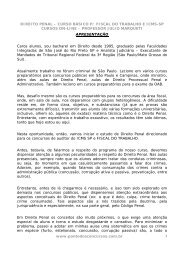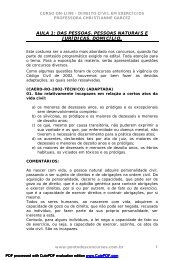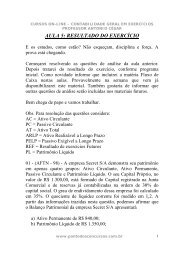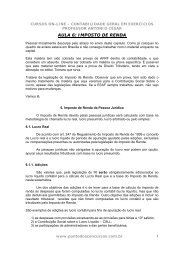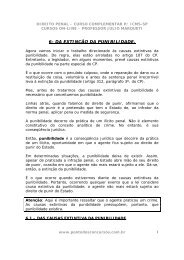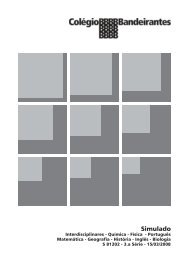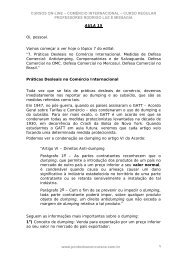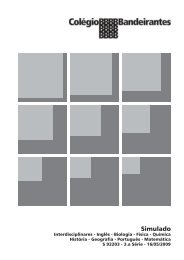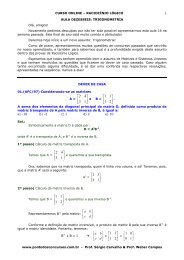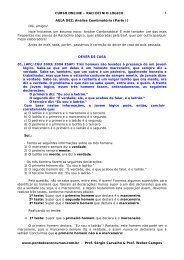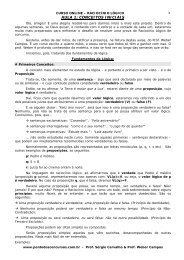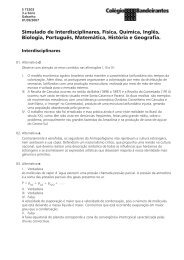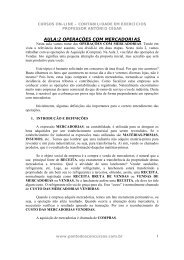simuladao-enem-provas-gabaritos - 2008
simuladao-enem-provas-gabaritos - 2008
simuladao-enem-provas-gabaritos - 2008
Create successful ePaper yourself
Turn your PDF publications into a flip-book with our unique Google optimized e-Paper software.
Unlucky strikes<br />
Apr 3rd <strong>2008</strong><br />
From The Economist print edition<br />
Banning smoking in public places is supposed to<br />
save lives. It encourages people to smoke less, so<br />
they do themselves and those around them less<br />
harm. That, at least, is the theory. Whether it works<br />
may depend on how uniform anti-smoking<br />
legislation is.<br />
Although many countries have introduced national<br />
bans, America has taken a piecemeal approach. A<br />
number of states, counties and municipalities have<br />
introduced various types of bans, and have enforced<br />
them with varying degrees of rigor.<br />
The problem with this, say Scott Adams and Chad<br />
Cotti, economists at the University of<br />
Wisconsin-Milwaukee, is that smoking bans seem to<br />
have been followed by an increase in drunk-driving<br />
and in fatal accidents involving alcohol. In research<br />
published in the Journal of Public Economics, the<br />
authors find evidence that smokers are driving<br />
farther to places where smoking in bars is allowed.<br />
The researchers analysed data from 120 American<br />
counties, 20 of which had banned smoking. They<br />
found a smoking ban increased fatal alcohol-related<br />
car accidents by 13% in a typical county containing<br />
680,000 people. (…) Furthermore, drunk-driving<br />
smokers have not changed their ways over time. In<br />
areas where the ban has been in place for longer<br />
than 18 months, the increased accident rate is 19%.<br />
(…) The findings are consistent with the suggestion<br />
that smokers are driving farther to look for<br />
alternative places to drink – probably places which<br />
are not enforcing the smoking ban.<br />
Another explanation is that some smokers are<br />
traveling to states where they may puff. Accidents<br />
in roads in Pennsylvania increased by 26% after the<br />
next-door state of Delaware introduced a smoking<br />
ban in 2002. How this weighs up against the<br />
long-term health effects of smoking bans is unclear.<br />
But it serves as a warning to well-meaning<br />
legislators.<br />
33. The "unlucky strikes" the text refers to are:<br />
a. o número de americanos que viajam para fumar<br />
em lugares onde ainda isso é permitido.<br />
b. a correlação entre fumar ao dirigir e a<br />
probabilidade de acidentes graves.<br />
c. o número de acidentes fatais nas estradas do<br />
estado da Pensilvânia, em pelo menos 120<br />
diferentes localidades.<br />
d. a decisão de alguns estados americanos de<br />
proibir motoristas de beber ao longo das<br />
estradas, com diferentes graus de punição.<br />
e. o aumento significativo de acidentes de carro em<br />
estradas americanas após a entrada em vigor de<br />
legislação restritiva ao cigarro.<br />
34. O que é sugerido por "piecemeal approach":<br />
a. um momento de encontro e relaxamento.<br />
b. um processo lento sem muito planejamento ou<br />
sistematização.<br />
c. uma abordagem que revela preocupação com o<br />
bem-estar do cidadão.<br />
d. uma aguardada e agradável decisão.<br />
e. o cumprimento da lei depende da consciência de<br />
cada pessoa e não da sua uniformidade.<br />
11



